Info on Chickens:
Have you always wanted your own fresh eggs without all the chemicals and hormones? Also did you know chickens that are kept by privet individuals have better tasting eggs? Consider having your own chickens, but make sure you are zoned for them. Chickens have been kept for their eggs for many, many years by people around the world. So what came first the chicken or the egg? Take a look at Genesis 1:20-23
20 Then God said, “Let the waters abound with an abundance of living creatures, and let birds fly above the earth across the face of the firmament of the heavens.” 21 So God created great sea creatures and every living thing that moves, with which the waters abounded, according to their kind, and every winged bird according to its kind. And God saw that it was good. 22 And God blessed them, saying, “Be fruitful and multiply, and fill the waters in the seas, and let birds multiply on the earth.” 23 So the evening and the morning were the fifth day. (New King James Version)
The answer is…..The chicken came first!!! God created the birds. Did He say anything about eggs in the verses above? Even if the egg came first how would it have hatched without a chicken to incubate the egg? It is pretty clear that the chicken came before the egg. There are many different breeds of chickens. Some breeds are well known for their egg productions. Others are known for their meat. There are some breeds that are called dual purpose chickens meaning they are good for both meat and eggs. Lastly, there are those fancy breeds that are just pretty to look at and show. We here at God’s Creatures keep chickens for their eggs, so we will primarily talk about how to care for egg production chickens.
Lifespan:
The lifespan of a chicken is around 7 years. Chickens that lay a lot of eggs over the years in their life, tend to tier out and live shorter. Some chickens can live to be in the teens.
Eggs:
Chicken eggs come in many different colors, not just white! Colors are white, cream, pinkish, tan, brown, dark brown, bluish, teal, and greenish. Some eggs are even speckled. Every breed is different and each has its own color of egg. You do not need a rooster to make hens lay eggs. A chicken will start laying eggs around 5-7 months old depending on the breed and the time of year. At first the eggs will be small and gradually get bigger over a few weeks. Not all hens lay an egg every day. In winter the egg production slows down and some chickens will stop laying altogether. Usually chickens that are over 3 years will not lay in the winter but it depends on the breed too. When a chicken has completed 2 egg cycles (in about 2 years) they will sometimes begin laying less eggs. At the end of an egg cycle, right before winter, a chicken will usually molt and grow new feathers. Often a chicken will stop laying when they molt. As chickens become old they will not lay eggs or they will only lay a few. It is best to keep your flock young (under the age of 4). Every few years you can buy new chicks and sell some of the older hens. Doing this will ensure that you always have enough eggs to eat.
Roosters:
Most roosters are not friendly towards humans but are aggressive. There are some breeds of chickens like the Silkies that are a nice docile rooster. A rooster’s job is to protect the hens and most roosters take their job very seriously. Even if you raise a rooster from a chick with all the love and care you could give a chicken, when he is around 2 years old he will still become aggressive. When you approach a hen or are near one, a rooster instantly feels you are threatening his hen(s) and territory. Often a rooster will run up, jump in the air, and hit you with his two spur/spikes on his legs. There is an advantage to keeping a rooster if you want to have baby chicks to replace your hens when they are older. A rooster can fertilize up to 25 hens. A hen will stay fertile for about 4 days afterwards. You can eat fertile eggs and there is no chick inside. A chick cannot develop in an egg unless it has been incubated. Our roosters have always been very kind to our hens. Whenever we feed our chickens the rooster always announces the food to the hens with a certain clucking. He will peck at the food, pick it up, and then drop it so the hens see the food. Our roosters have always let the hens have first pick of the food before he eats his share. It is never a good idea to have more then one rooster. You only need one rooster per 25 hens. If you have more then that you can have 2 roosters, providing that the roosters have a large place to live so they do not come in contact with each other often. Roosters will compete with each other for a hen and will even fight to the death. The hens will decide on a rooster and will be loyal to him and keep near him. Here is a little story. Once we bought some chicks and when they all grew up, we found that we had two roosters. As time went on the roosters did not get along. The tan rooster won over all the hens accept one. The black and white rooster had that one hen. We had to sell a rooster to prevent the roosters from hurting each other. We sold the black and white rooster that only had one loyal hen. That loyal hen would never accept the tan rooster even months after the black and white rooster had been gone. Sometime when the tan rooster took the hens out the loyal hen would stay behind in the hen yard alone. Not all hens are this loyal to their roosters but some can be. Who would have thought that a chicken could be so loyal?
The hen house:
Some of you may want to have free range chickens and that is fine but even free range chickens need a good place to sleep and get out of bad weather. So regardless if you choose to let your chickens run free or not you will need a hen house. Our hen house was custom made by my dad and brothers. There are websites out there that build hen houses if you are not handy in building. A hen house does not have to be fancy it just needs to provide your chickens with these things: a safe place from predators, a place to lay eggs, and shelter from rain, hot weather, and cold weather.
The hen yard:
Your hen house will need a yard attached to it so the chickens can come out in the morning in the sunshine. Chickens do not like to be locked in a dark hen house when there is light outside. If you plan to keep your hens in there house and yard most of the time, then it is best to make a large yard for them. Our hen yard is about 12ft X 8ft. If you plan to let your chickens have free range on your property then a smaller yard will do. One important thing about the hen yard is you want to cover the top with chicken wire to prevent your chickens from getting out. Also a top is good to prevent cats and other birds from getting in. If you build your own hen yard you can use wood and chicken wire or chain link and chicken wire. However you decide to make the yard it is best to bury the chicken wire in the ground 6in-12in this will help prevent squirrels and other animals going under the fence.
The nest box:
You want to supply you chickens with nest boxes so they will lay the eggs in them, thus making your job easy to collect them. Without nest boxes you will have an Easter egg hunt every day and after the first week or so it will not be fun anymore. You can buy nest boxes for chickens at feeds stores or you can build your own out of wood. Our hen house has boxes built into it on the outside, making it very easy to collect the eggs.
Bedding:
You will not need any bedding on the ground for your chickens but you can use bedding the nest. Some chickens will scratch it all out but others will leave it in. Bedding makes it easier to clean the boxes out, also it helps keep the eggs cleaner, and additionally it will help prevent eggs from cracking.
Cleaning:
Before you go to clean the hen house, you can put on some gloves, if you have long hair put it in a ponytail, and wear old shoes or boots. You have to go in the hen house and scrape it all clean. In my opinion the best tools are a hoe and a flat headed shovel. Depending on the size for you hen house and the amount of chickens will determine how often you should clean it out. At the very least clean your hen house once a week but 2 times is better. The hen yard will not needs as much cleaning as it is in dirt and compost by its self. But if you have a lot of chickens or a small yard you can go in and rake it out as needed.
Water Dish:
My favorite water dishes are the automatic ones. You can use any kind of dish for water just make sure it is low enough for them to drink out of. Do not use large tubs as chickens can drown in them. I always keep my chicken’s water in the hen yard and not in the house because it is out of the way and no one will be roosting over it at night making it a mess if you know what I mean.
Water:
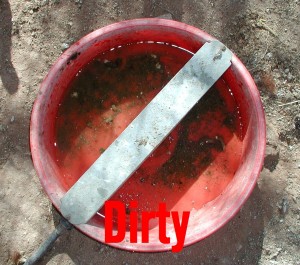
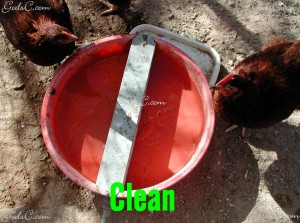
Chickens are messy birds so you must always be changing the water (about every 1-4 days). A key to healthy birds is fresh water. Also chickens will drink more water when it is fresh thus making them lay more egg.
Food Dish:
You can feed your chickens by hand twice a day or give them a dish and fill it every morning. The third alternative is buying a drop down chicken feeder. This is what we use and ours holds about 35lb of feed. If you choose to feed your chickens by hand, feed them in the early morning and before the sun goes down and you could even feed them mid day too. If you choose a dish keep in mind that chickens scratch. Some chickens will get in the dish and make a mess so it is best to just put out what they can eat in one day. If you fill the dish every time they spill it they will only eat the new food you put out thus wasting the other food.
Food:
You want to feed your chickens a lay feed because it has the most protein. You can feed a little scratch feed with the lay feed but don’t just feed plain scratch because you will not get as many eggs. There are three forms that lay feed comes in, Lay Mash, Lay Crumble, and Lay Pellet. In my experience Lay Mash is not the best choice because it was a little too powdery. My chickens would pick out the bigger pieces and about a third of the food would get flung out of the feeder, and get mixed into the poo. Some of it they would pick up but not very much. I like the Lay Pellet the best because if it gets knocked out of the feeder the chickens are able to pick it up easily because it is bigger. I have used the Crumble and it is ok too. Note: never place the food near the water as it will get into it making the water dirty.
Veggies and fruit:
Give your chickens all those scraps from the kitchen but not too many in one day. Never give them salted or seasoned veggies, and do NOT give them avocado as it is toxic to birds.
Tips on getting your Chickens to lay lots of eggs:
1. Use a light in the hen house that is on a timer. Program it to come on at sun rise and stay on for 12 hours. If a chickens has 12 hours of day light they will lay eggs almost every day. In the winter chickens stop laying or slow down because it is cold but also because there is less day light. Use a light in the hen house it will help a lot.
2. Feed high quality feed with at least 17% protein.
3. Supply them with fresh water daily.
4. Do not let them free rang all the time. If your chickens are always running free they will be too busy to concentrate on laying eggs. We let our chickens out about 1-2 days a week.
5. Keep the hen house clean.
6. It may sound funny but put a few dummy eggs in the nest boxes or use plastic Easter eggs or golf balls. A chicken will be more at to lay an egg if an egg is already in the nest box.
7. Collect the eggs only once a day. If you are always disturbing the nest collecting eggs the chickens that did not lay yet may decide to wait and lay the next day instead.
8. Keep dogs and children away from disturbing the chickens.
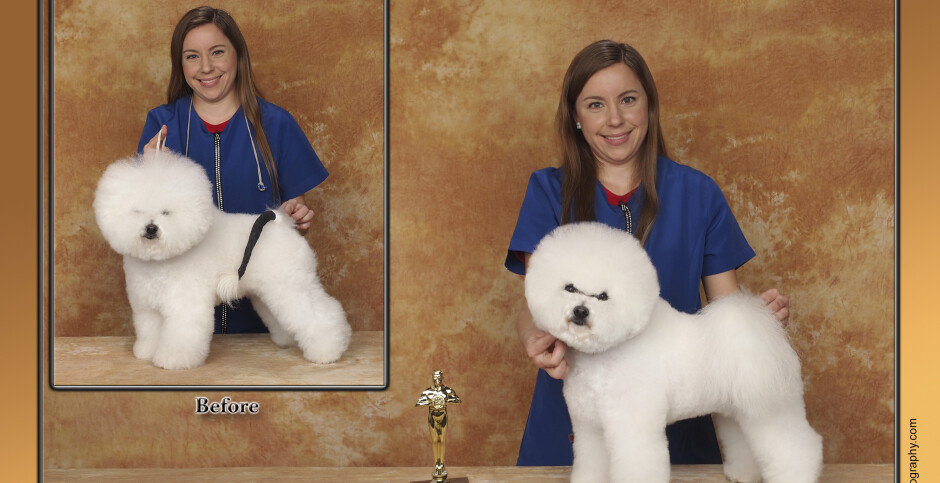
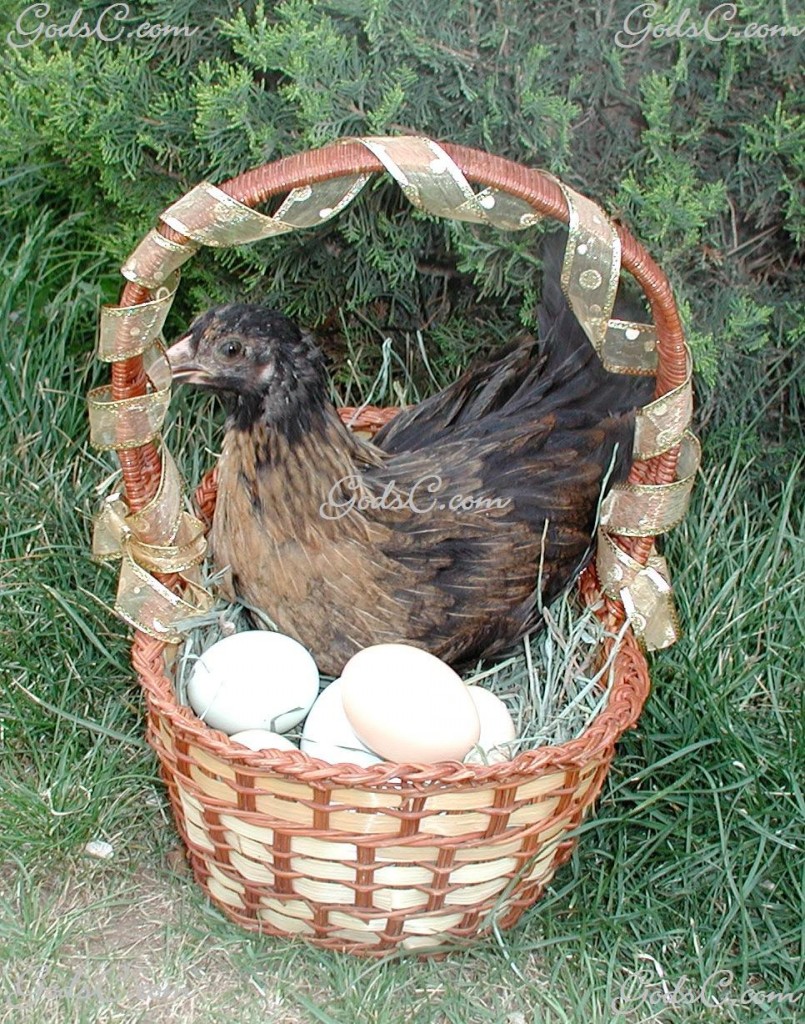
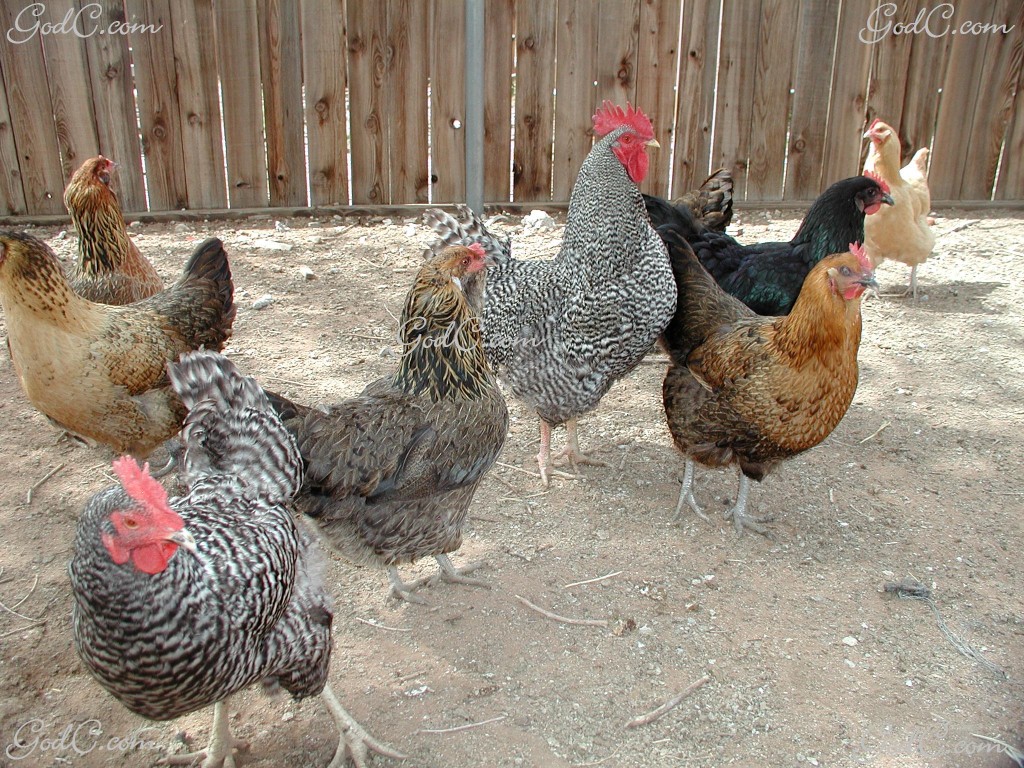

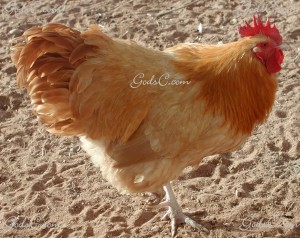
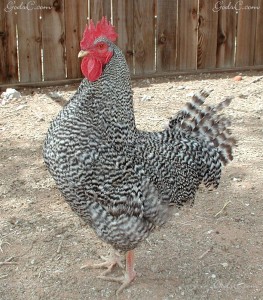

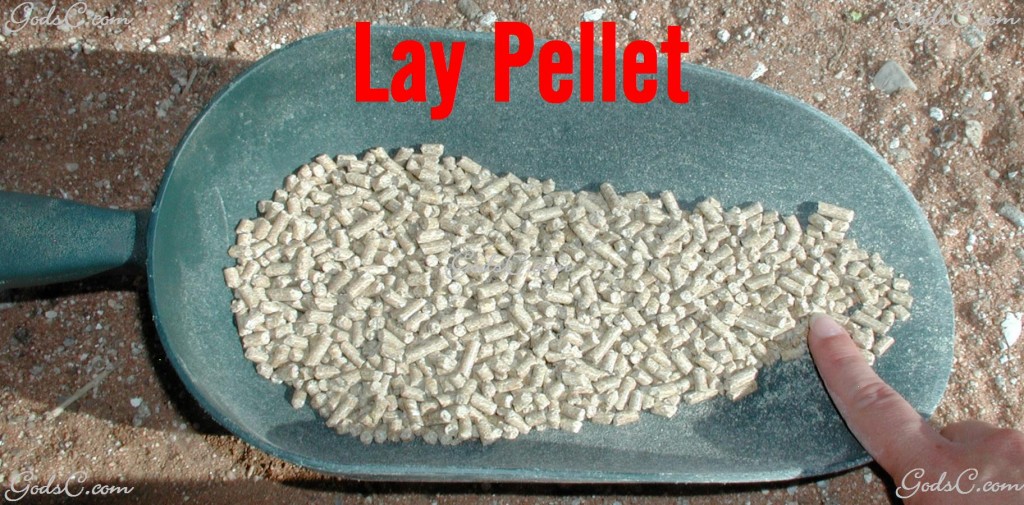
I have had as many as 15-20 birds in my 8’ X 8’ hen house but my hen run is about 10’ X 24’. I only had 5 nest boxes and the 15-20 hens would not always use every box (they like to lay in a box that already had an egg in it). Right now I only have 6 birds in this hen house because I have split up my hens to go with different roosters in other coops.
I cant wait to get my chicks from you. your web site has given me tons of info. my question is how big should my hen house be and how many nesting boxes will i need? i know you wont know how many hatch but i dont want to be to small or to big. how many chickens in your little hen house?
Okay cool. They have an enclosed coop full of hay I just wasn’t sure if the Bantams would need special care in the cold. Thanks good to know.
Question:
I wanted to ask you if you have to make any special provisions for your Bantam hen during the winter months? It was discovered that their feathers are not as thick and that they are more sensitive to cold temps and this will be my first winter with them. Thank you.
Answer:
All my hens sleep in a nice enclosed hen house and are fine in the winter.
You can add bedding in there nest box if they sleep in them. A few of my hens sleep in the nest boxes. Just make sure your birds have an enclosed place to sleep in. If you want you can give them a heat lamp in the winter on the colder nights (like when it gets in the teens).
I was raised on a farm and really miss the good ol’ days. It is good to see someone like you to show compasion and love for animals. Have a nice day and God be with you all. Send your address and I’ll stop by for some eggs. Thank you!